Herb Alpert Interview: Still Trying to Reach the Promised Land
by Jeff TamarkinThink back to the years 1965 and ’66, and which musical artists come to mind? The Beatles and the Rolling Stones, of course—the British Invasion was at its zenith. On the home front in the U.S., there was that recent convert to rock, Bob Dylan, and popular bands like the Beach Boys, the Lovin’ Spoonful, the Mamas and the Papas and the Byrds. Of course, there were the sounds of Motown and soul music.
But take a closer look at the sales charts from the period and you’ll quickly be reminded of another relentless force: Herb Alpert. For a while, the trumpeter and his group, Herb Alpert and the Tijuana Brass—whose music, inspired by the sounds of Mexico and other points south, has been described as “Ameriachi”—were outselling everyone, including the Beatles.
Beginning in 1962, with The Lonely Bull, and into 1968, Alpert and his group placed 10 albums into the Billboard top 10, nine of those consecutively, with six of them reaching #1. Alpert reportedly sold 14 million albums in 1965 alone and at one point in 1966, five Tijuana Brass albums sat in the top 20 simultaneously, a feat acknowledged by the Guinness Book of Records.
One of those albums, 1965’s Whipped Cream and Other Delights, sported what is inarguably one of the most instantly recognized album covers in the history of recorded music, featuring model Dolores Erickson posing—well, just take a look above!
Related: Our Album Rewind of Whipped Cream & Other Delights
Alpert and the group also did remarkably well in the singles department, a constant presence via such familiar, high-charting hits as “The Lonely Bull,” “A Taste of Honey” and “Spanish Flea.” Not only were they played constantly on the radio; several became theme songs for TV game shows and were used in commercials. Herb Alpert and the Tijuana Brass were everywhere (most notably, their “Mexican Shuffle” enjoyed a second life as “The Teaberry Shuffle” in chewing gum ads).
Then, in 1968, just as it seemed that the Herb Alpert onslaught might be dying down, he cut a vocal track, “This Guy’s in Love With You,” written by Burt Bacharach and Hal David. Until that time, Alpert had been known solely as an instrumentalist and bandleader, but record buyers rushed to the shops to pick up the ballad. The single became Alpert’s only one to reach the top position until 1979, when he returned to #1 one final time with “Rise,” a dance number that fit in snugly with the sounds of the day.
Making the story all the more impressive is that Alpert released all of this music on A&M Records, an independent label he’d launched with fellow executive Jerry Moss. Even while leading one of the top performing and recording outfits in the country, Alpert co-ran one of the most successful labels, which ultimately signed such major artists as Joe Cocker, the Police, the Carpenters, Peter Frampton, Cat Stevens and dozens of others spanning multiple genres.
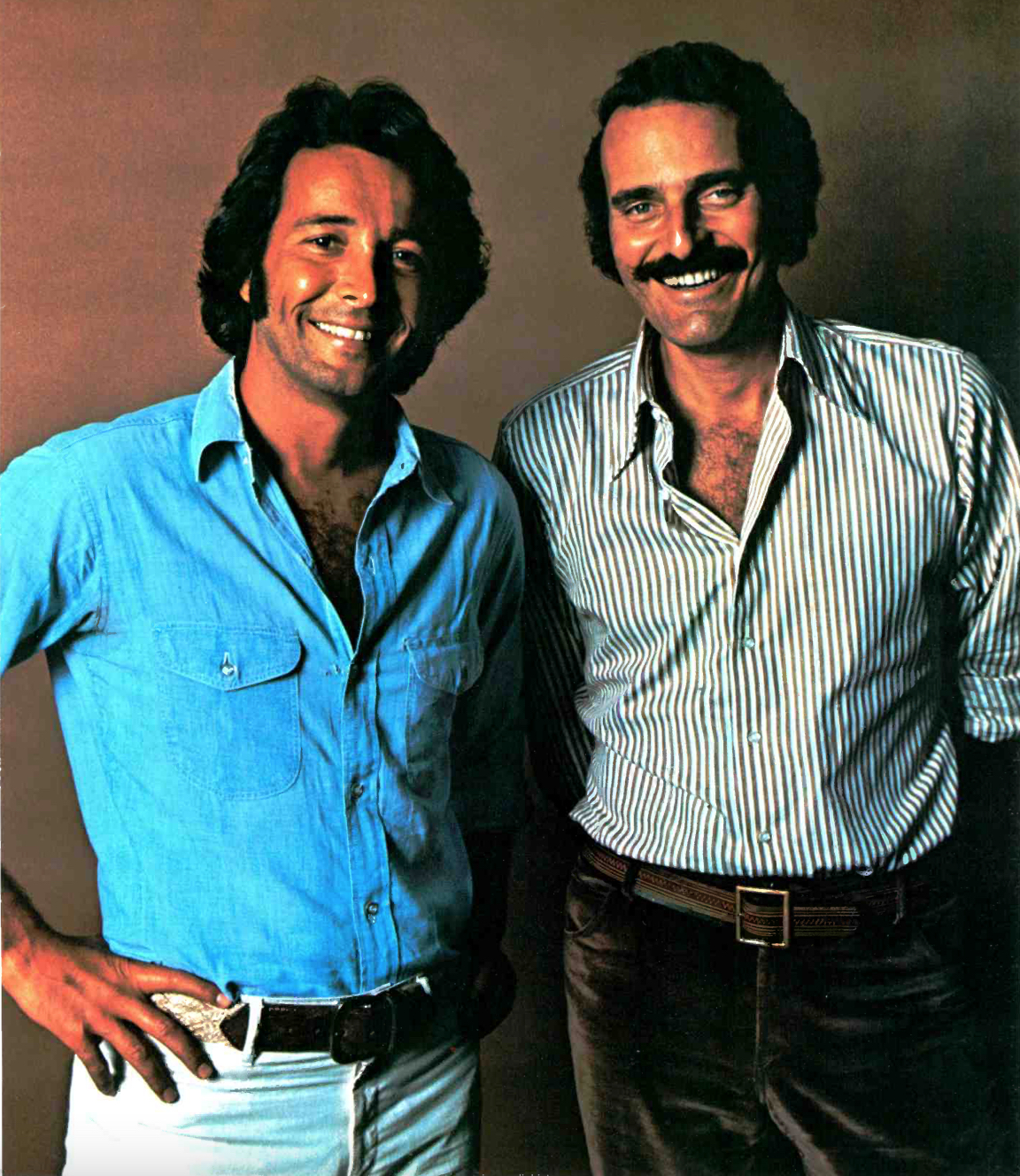
This ad ran in the October 7, 1972 issue of Record World.
In 1989, having established the company as a major player in the music industry, Alpert and Moss sold A&M to the PolyGram conglomerate, which in turn sold it to another company that merged with Universal Music. Alpert and Moss continued to manage the label into the early ’90s, but eventually agreed it was time to move on.
Related: Moss died on August 16, 2023, at age 88
Not that that has stopped Herb Alpert. He has continued to make new music on a regular basis, quite often with his wife Lani Hall, the onetime lead singer for Sérgio Mendes and Brasil ’66 {that’s her on “Mas Que Nada”), another massively popular A&M signing. Alpert, in fact, released a 2021 album, titled Catch the Wind (no relation to the Donovan song of the same title), on another label he now pilots, this one simply called Herb Alpert Presents.
The album features nine original compositions and several covers, including two Beatles songs—“Eleanor Rigby” and “Yesterday”—along with such standards as the Charlie Chaplin-composed “Smile,” “America the Beautiful” and George Gershwin’s “Summertime.”
Herb Alpert, born March 31, 1935, never thinks about retiring. He is not only a working musician but an active and acclaimed painter and sculptor, who has exhibited in major museums, and is the subject of a recent documentary film, Herb Alpert Is… Another doc, the two-part Mr A & Mr M: The Story of A&M Records, premiered on the Epix network.
Shortly after the release of Catch the Wind, Herb Alpert took some time out of his hectic schedule to speak with Best Classic Bands about his unprecedented career, still very much a work in progress.
Listen to Alpert’s rendition of “Eleanor Rigby” from Catch the Wind
Best Classic Bands: You’re incredibly busy for a guy who could have retired years ago.
Herb Alpert: I’m a right-brain guy. I paint and I sculpt and I make music and my new album just came out. I have about 23 songs I’ve been working on for another album. I’m ahead of myself.
For somebody who’s accustomed to working in recording studios with other musicians present, how did you adjust to recording remotely during the pandemic?
Zeros and ones [digital recording] have changed recording. Unfortunately, we had to do it this way. You send material to various musicians, friends that I like to play with, and everything is time-coded. So, they can send me a track, and I can put a trumpet on it if I happen to like it, and I’ll send just the trumpet back to them, and they could put it back into their unit. You just kinda make music that way, which is not ideal, but it works. And if you do it with love and care, it almost feels like you’re fooling mother nature. It feels like it all happened at the same time.
Would you say that the digital recording process is the biggest change from the early days of recording for you?
Definitely. In terms of recording, for sure. You have umpteen tracks to fool around with, and they can be an advantage and a disadvantage. If you get too hung up on perfection and get too technical, you can spend the whole time trying to tune everything and put everything in its perfect place, if there is such a thing. And by doing that, you take the heart out of it.
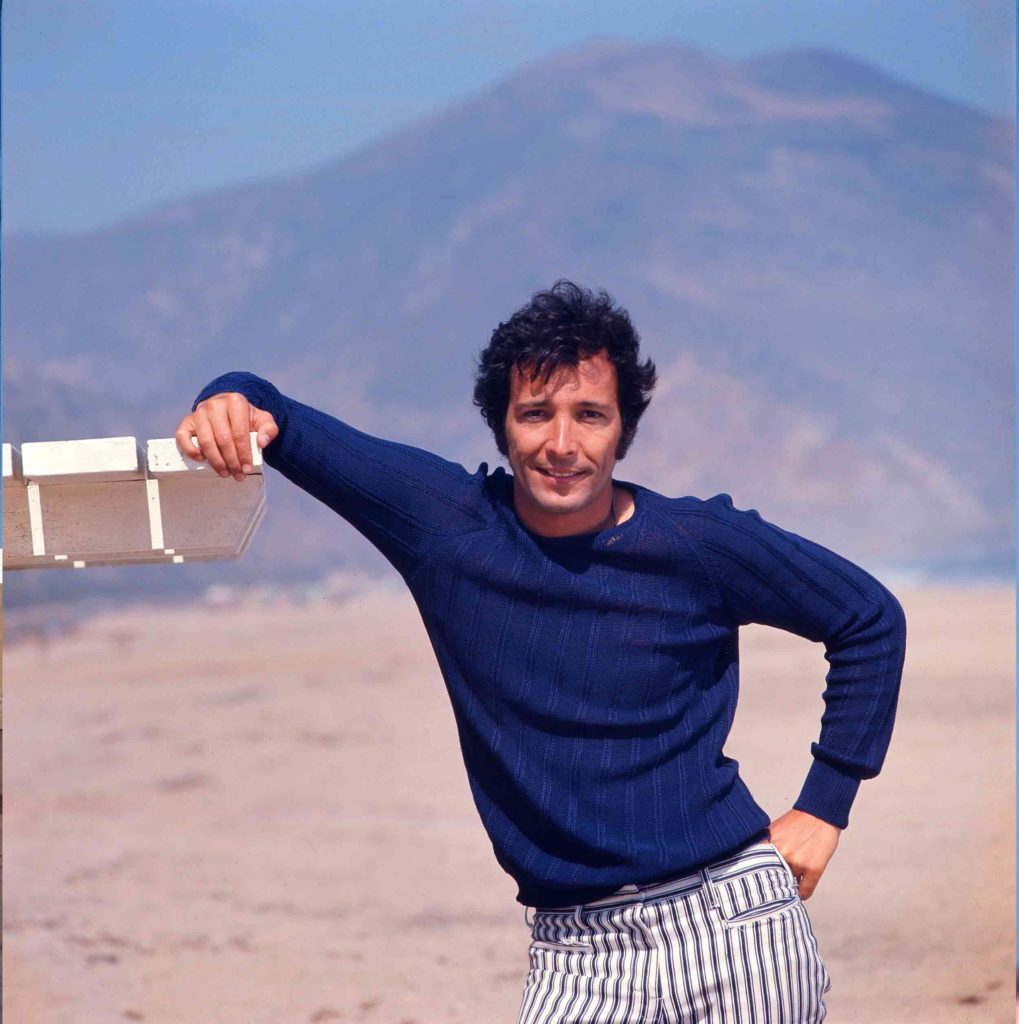 Do you still practice the trumpet, even when you’re not touring or recording?
Do you still practice the trumpet, even when you’re not touring or recording?
Every day. I love the process. I’ve been doing it since I was eight, and you never get to the finished product. You never get to the promised land. You know, you’re always working on something that you feel you need to work on.
Do you keep up with trends in contemporary music?
Actually, I don’t. I like jazz. I like classical music. I listen to the jazz stations. I’m not really up on what’s happening in the pop world and I never really tried to be, because I’m not trying to make the beat of the week. I’m just trying to make Herb Alpert music, the music that comes out of me, and leave it at that. If other people like it, man, that gives me pleasure, and if they don’t, it’s OK.
What did your wife [Lani Hall] contribute to this record?
She has golden ears. When I’m uncertain about a particular track or performance, I ask her to listen to it, and she’ll give a real honest opinion of what she hears. She’s very musical. I always take note when she hears something that I should pay attention to.
You cover two Beatles songs on this album, Did you feel like you were rivals with them in the ’60s?
I never thought about it. The only reason I know that [outselling the Beatles in 1965] happened was the Guinness Book of Records pointed it out, but it’s not important to me. The Beatles were great. I loved them. In fact, the first time we played in London, the promoter was Brian Epstein, who was their manager. And the second night we were there, Brian organized a little party between us and the Beatles. It’s a great memory.
In the Herb Alpert Is… documentary, there is video showing the Tijuana Brass nearly getting mobbed by screaming girls. What was it like to find yourself in that position?
It was a different feeling. I came out of playing parties and bar mitzvahs. So to have that type of acknowledgement was very strange. I didn’t want to capitalize on anything other than the music. If people liked the music, great. If they don’t, it’s OK with me. I didn’t want to make it [look like] we were this glamorous group. So I stayed away from most of that.
Watch the trailer for the Herb Alpert Is… documentary
In the early ’60s, even before the Tijuana Brass broke, you partnered with [producer/entrepreneur] Lou Adler and made records of your own, but you two also worked with artists like Sam Cooke. What do you remember about that period?
Lou is my best friend; we’ve been friends for, I don’t know how many years now. When we started out, Lou wrote some poetry and I wrote some music for the poetry. We made some demo records and, as it said in the documentary, we took them around to various publishing companies. Sonny Bono was working at Specialty Records and he listened to our stuff and tried to discourage us; he said that we didn’t have it. [He said that the] songs weren’t good and don’t waste our time. That was his advice to us. It was a great experience working with Sam Cooke because Sam Cooke was the real thing. He was a gentleman, he was a tremendous talent, and he taught me a lot. He didn’t know he was teaching, but there’s something about his honesty and his willingness just to let the music flow from him naturally that I picked up on.
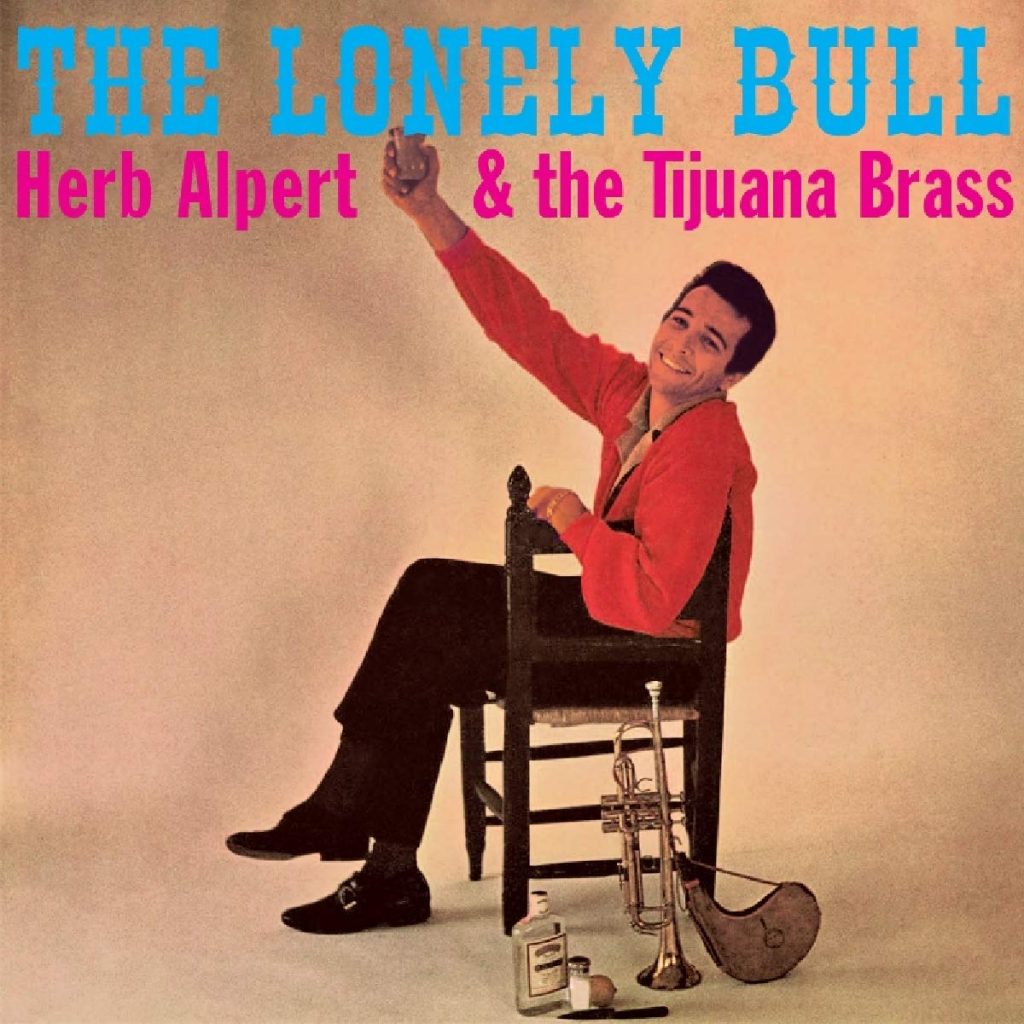 I know you’ve told this story a million times, but take us back to the famous bullfight in Mexico that inspired the Tijuana Brass.
I know you’ve told this story a million times, but take us back to the famous bullfight in Mexico that inspired the Tijuana Brass.
I liked the bullfights at that particular time in my life, and I was enamored by this brass band that was in the stands and I tried to reflect on those feelings on those Sundays with a song [“The Lonely Bull”]. I didn’t have a master plan. When you come right down to it, you have to be at the right place at the right time and luck plays such an important part in the success of any musician or any artist or any businessperson. I was in the right place at the right time with that song.
Did you have any sense that Whipped Cream and Other Delights and the single “A Taste of Honey” were going to be as huge as they were?
The album came out normally and it didn’t do anything magical. I was playing with the group in Seattle, Washington, at the Edgewater Inn, and every time I played “A Taste of Honey,” people went crazy. They loved it. So sometimes I played it twice. “A Taste of Honey” was on the B-side, and my partner, Jerry Moss, liked “Third Man Theme,” that was on the A-side. So I called him and I said, “Man, we’re on the wrong record. Turn the record over and start promoting ‘A Taste of Honey.’ He said, “Nah, man, you can’t dance to it. It’s too long and it stops and starts. Radio’s not going to like it.” I said, “Turn the record over. I’m telling you. I’ve got a focus group up here.” We turned it over and I don’t know how long it took, but when it did take, man, that just took everything with it when that record broke, because that album went crazy. It’s like 14 million sales. That was fortunate.
Related: Instrumental hits were ubiquitous in the ’60s. Here are some others.
When you looked at the Whipped Cream… album cover photo for the first time, did you say, “This is going to be a sensation”?
No, I said, “Oh my God, I don’t like it.” I was in the studio recording the Whipped Cream and Other Delights album and Peter Whorf, who designed the cover, showed me that picture. I was thinking, oh sh*t, man, it doesn’t look anything like the music I’m making. I had to be talked into it, and luckily I was,
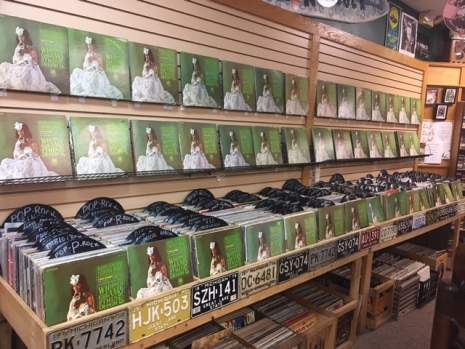 That’s one album that you saw in everybody’s collection. My parents owned it and they paid no attention to the pop charts.
That’s one album that you saw in everybody’s collection. My parents owned it and they paid no attention to the pop charts.
Sometimes I tell this when we’re touring, and it really happened. This guy came up to me and said, “Man, that album cover is one of the best things I’ve ever seen. It’s amazing. I love the girl. I love the whipped cream. I love the blah, blah, blah.” I said, “Great. What about the music?” He said, “Well, I haven’t had a chance to listen to that yet.” I’m serious, man. That happened.
A&M was obviously named after your and Jerry’s initials, but it wasn’t what you originally wanted to call it, correct?
It was originally Carnival Records; that was our original name. There was other prior usage of that name, we found out, and we wanted to release “The Lonely Bull.” It was tough trying to clear these various names. We had A&M—I think it was maybe third on the list—and that was the one that cleared. So we went with it.
Did it ever become difficult for you to balance your work at the label with being an artist?
It did, only because I’m an introvert. All of a sudden, we became really successful and had these meetings with lawyers and accountants and all that stuff. That was tedious for me.
What do you think set A&M apart from other labels?
I think we were very concerned with the artists. We were not looking for the beat of the week. We were looking for artists that had something to say, like Cat Stevens and the Carpenters. Most of the artists that we chose were just on their own path, and we liked that. It felt right. It felt like that was the thing to do. I mean, we signed Waylon Jennings in 1964. I produced several records with him.
As time went on and the label became more rock-oriented, signing artists like Joe Cocker and the Police, did you relate to that music?
Oh yeah. I relate to the Police for sure, because Sting is a beautiful human being. He’s a great artist, intelligent and writes great songs. Joe Cocker was his own thing, man. He opens his mouth and that voice comes out and it can drill you. He has whatever that thing is that Ray Charles had. I was watching them rehearse the Mad Dogs and Englishmen [tour] on our soundstage at A&M, and I remember walking in there with my eyes closed. I learned that through Sam Cooke. I sat on the stage just listening to them and opened my eyes, and there was Joe, gyrating like he was playing guitar, and singing, and I got goosebumps. I was maybe a little bit of a stuffed shirt when it came to rock and roll and that type of music, because I came up as a classically trained musician. But when I heard that I got the aha.
Watch A&M artist Joe Cocker duet with Tom Jones
What was your first impression of Karen Carpenter’s singing?
That voice was pretty unique. She had a beautiful sound. She was very musical. And she was a hell of a drummer. It was an interesting combination, but the thing would not have worked without [her brother] Richard Carpenter, because Richard knew exactly how to get the most out of Karen’s voice. Karen, at that time, didn’t really know she was a singer. She thought she was a drummer, but Richard knew a great song. He was a really good orchestrator/arranger. I gave them “Close to You” in 1970, and that was the song that really opened the door wide for them. Before that, some of the people in my own company didn’t know why we signed these cute kids, and they found out the hard way.
Several years later, you had one the biggest-selling albums in history, Frampton Comes Alive.
That was great. Jerry Moss, that was his idea for the live album with Peter [Frampton], who was a really fine artist and a wonderful guitar player, in addition to writing a good song and singing. That was a brilliant stroke. And again, perfect timing.
Back to your own hits, why did you decide to release a vocal track, “This Guy’s in Love With You”?
I didn’t want to sing. I was doing this television show and they asked me to see if I could find a song to sing because they were tired of photographing me with the trumpet in my mouth. So I called a good friend, Burt Bacharach, and I said, “Is there a song that you find yourself whistling every now and then?” He sent me “This Girl’s in Love With You” and I loved it. I thought I could handle it and I called [Bacharach’s songwriting partner] Hal David and he changed the gender. I did it on the show. Two weeks later, it was number one in the country. It was unbelievable. It caught me totally off-guard. That was one take. I just sang it one time. I remember vividly because I was just doing a demo take on it, just to see if it would work. I walked into the control room and the people that were there said, “Don’t touch it.” I was just fooling around with it. They said, “It sounds great.” I communicated the feeling of that song.
What about “Rise”? That came in 1979, after you hadn’t had a big hit for several years.
I have a good feel for songs and I’m about melody. I like good melodies, and “Rise” is a great melody. It wasn’t written the way I finally recorded it. My nephew, Randy [Randy “Badazz” Alpert], was a half-writer on the song. They wanted to do it as a disco song at 120 beats per minute, and I said, “Look, man, this is a really good melody. Let’s slow it down.” So we slowed it down to a hundred beats per minute. It took a while for it to catch on, but when it did, it went through the roof.
When did you know it was time to sell A&M and to move on?
It was hard to compete with the major companies. Jerry and I were the sole owners of A&M and big companies were paying big bucks to Prince and those artists that were worthy of signing, and we couldn’t take a chance and be wrong. We felt like it would be time to head for the hills.
You’re very much involved in art today as a painter and sculptor. You’ve been exhibited in museums. Would you say that is your main concentration now?
I’m serious about it. I’ve got nine big sculptures at the [Field Museum] in Chicago, and nine at the Jackson Hole, Wyoming [National Museum of Wildlife Art]. It’s been great. I love doing it. Like I said, I’m a right-brain guy and this is how I spend my day.
You said you’re not a rock and roller, yet you’ve been inducted into the Rock and Roll Hall of Fame. What does that mean to you?
That’s a great honor. This might sound humble, man, but those things don’t even interest me. I just do what I do. If people like it, great. If they don’t, it’s OK. I just wake up every morning doing the same thing.
Watch Herb Alpert and the Tijuana Brass perform “A Taste of Honey”
Related: Our concert review of Alpert in 2025 at age 90
Alpert’s recorded legacy is available in the U.S. here and in the U.K. here. He continues to have a busy tour calendar. Tickets are available here and here.

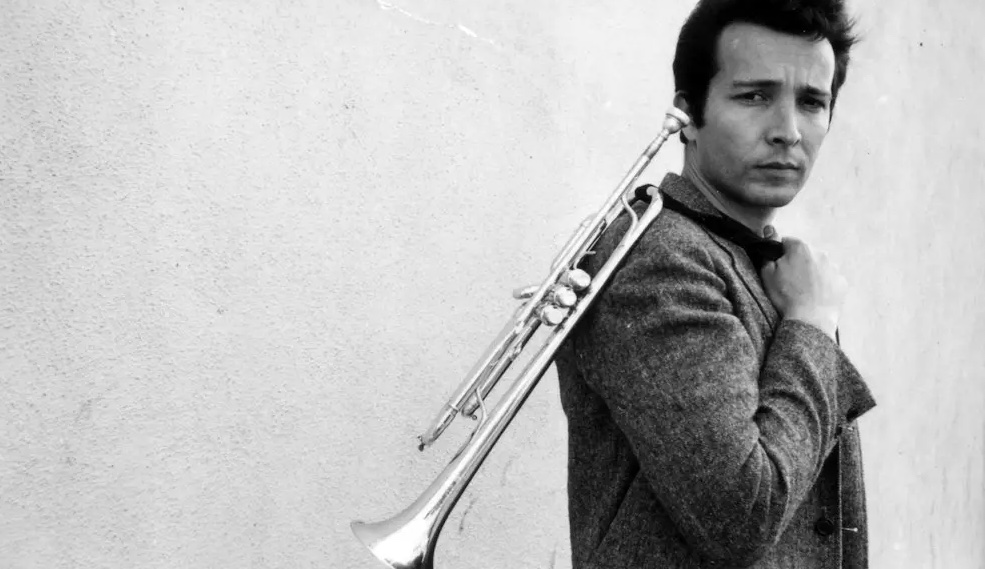
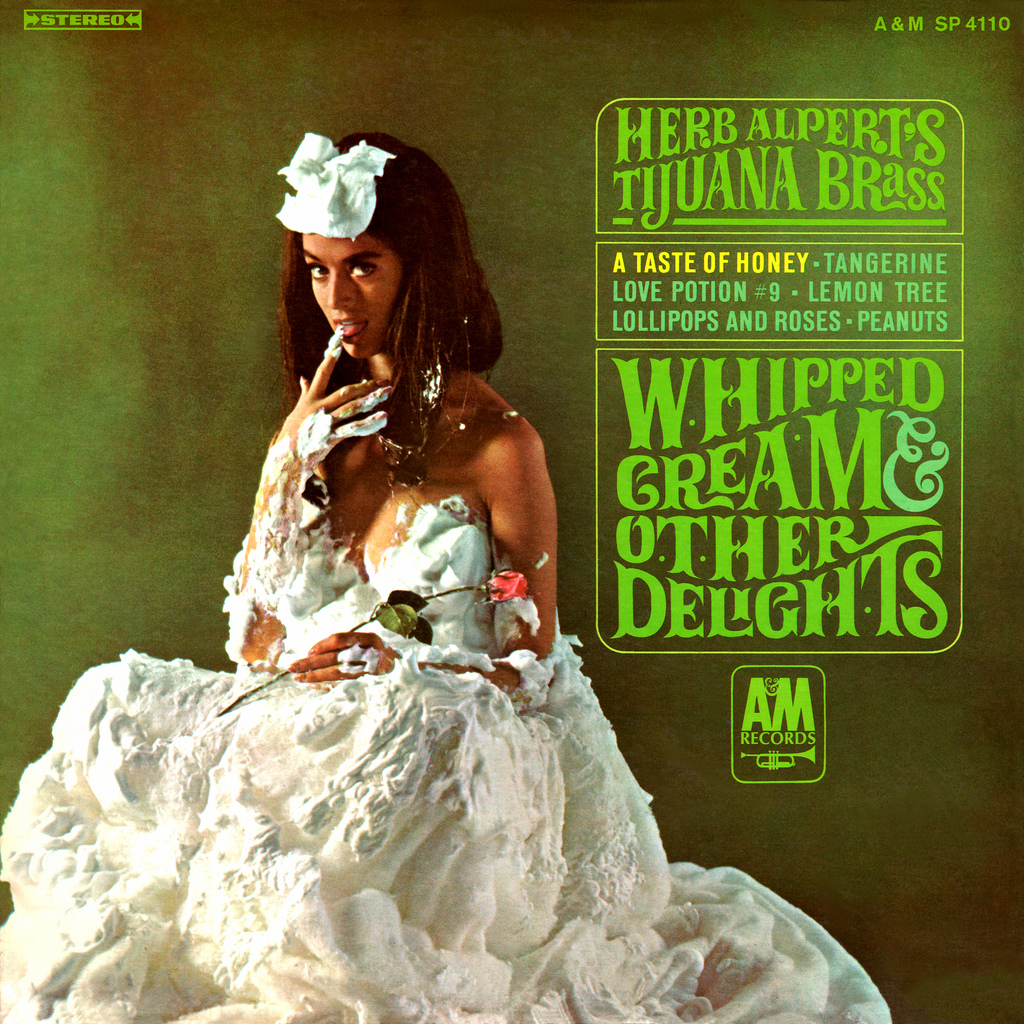
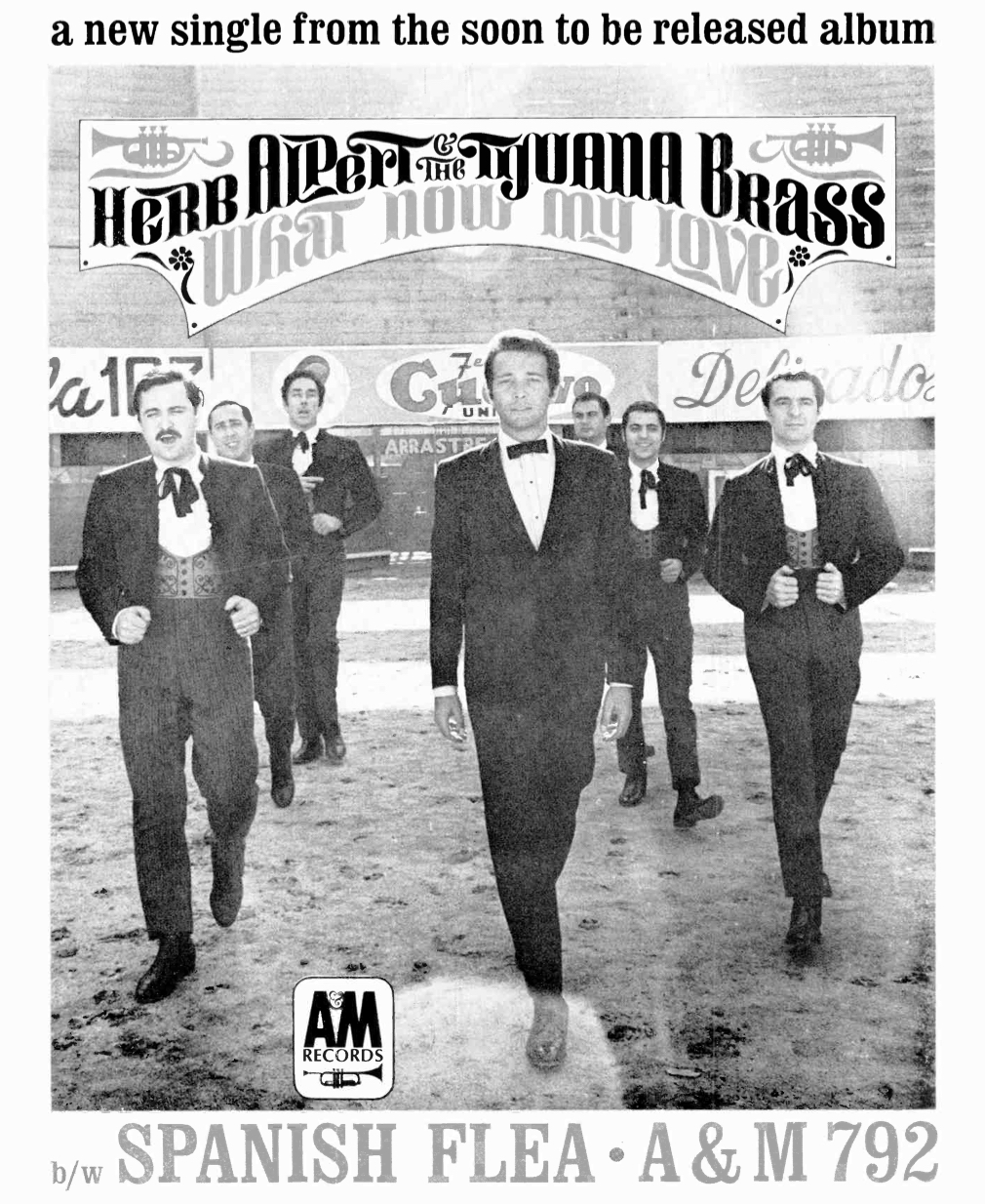


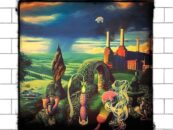


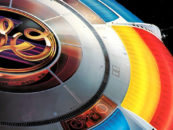

7 Comments so far
Jump into a conversationThanks Jeff. This is a great piece that shows your standards of writing and the respect that artists have of you.
I saw Herb and Lani in concert in 2019, and I sat next to Jerry Moss (Smith Center in Las Vegas). Unforgettable night and it’s good to read Herb’s got plenty more in the tank. Great interview.
A remarkable guy, for sure. The new album and its predecessor (I Feel You) are beautiful Latin-tinged jazz with a nimble and graceful small combo. Intimate, joyful stuff.
Before the Beatles, there was Herb Alpert & the TJB. I missed the 60s revolution in music, but I had every TJB LP. And still have the CDs Herb put out on Shout! Factory. Can’t wait for Herb and Lou to write their histories in music.
Terrific article about a terrific and prolific artist, an icon of our times.
A&M Records put out an amazing batch of rock albums during the late 1960s, including the first US versions of albums by UK artists: Cat Stevens, Joe Cocker, Procol Harum, Humble Pie, Fairport Convention, Free, the Move, Strawbs and Spooky Tooth.
I saw Herb and Lani a few years ago. Anyone who has any interest in seeing top-notch musicians perform PERFECT versions of songs by Herb Alpert and Brasil ’66 should definitely catch them. Lani sounds as exquisite as ever. Joyous music.
Terrific interview and well written article.
Herb Albert and Al Hirt were the early inspirations for many young trumpet students, in the mid -1960s.